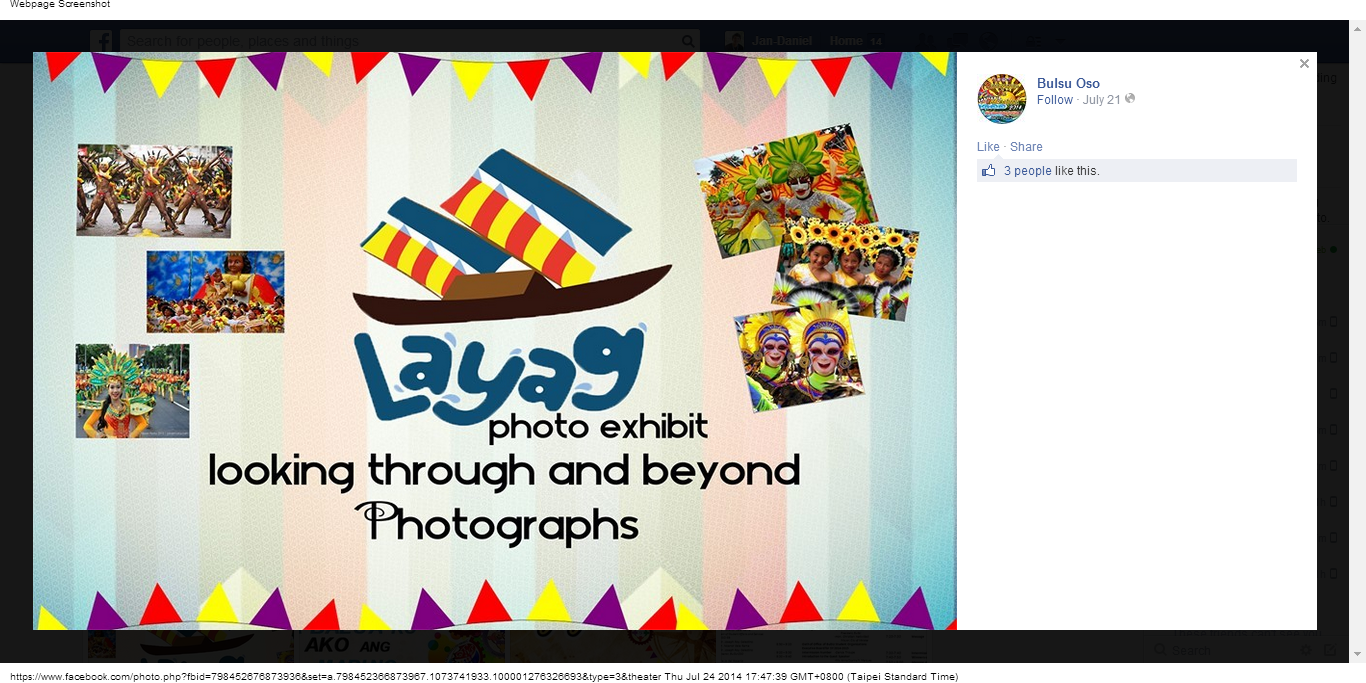THE SANGGUNIAN and the Ateneo parties involved have requested Bulacan State University (Bulsu) to implement the necessary sanctions against two of its student groups that committed intellectual property rights (IPR) violations against Ateneans.
The Bulsu Office of the Student Organizations (OSO) and the Bulsu Ecorangers organization used logo designs of the Ateneo Orientation Seminar (Orsem) Layag and the Ateneo Enterteynment para sa Tao, Bayan, Lansangan at Diyos’ (Entablado) production Sugod! Filemon Mamon!, respectively.
The Bulsu groups used the designs without prior consent and without crediting the Orsem Design Team and Entablado for the respective logos.
On July 28, the Sanggunian released a memorandum which stated that the Loyola Schools Office of Student Activities (OSA) and the Bulsu administration have been in constant communication to resolve the issue.
Third Year School of Humanities Central Board (CB) Representative Madel Callanta said that the Sanggunian has sent the memorandum, along with a letter from OSA Director Chris Castillo and supporting evidences, to the Bulsu administration.
Bulsu has already complied with the artists’ request to apologize as an institution and has addressed a letter of apology directly to them, said Callanta.
Four members of the Bulsu administration personally came to the Ateneo on August 1 to discuss and clarify the situation.
Details of sanctions to be filed against the Bulsu students who committed the violations remain unknown.
In a July 26 Facebook post of Bulsu OSO Executive Board (EB) Chair Anna Czarina Marquez, she apologized for the incident on behalf of the organization.
Marquez explained that the incident was an “honest mistake” on the part of the Bulsu OSO EB and that it was not their intention to create an “uncomfortable situation between the two universities.”
The Sanggunian’s memorandum said that the letter of apology issued by the Bulsu OSO EB cannot justify its lack of intent to violate the original artists’ IPR.
Intent
In the same statement, Marquez explained that while Bulsu used the logos for their event “Balangayan sa Unibersidad 2014,” the artists did not claim the output as their own.
Orsem Layag Design Head Jan-Daniel Belmonte said this lack of understanding regarding the IPR is disappointing.
He explained that by using the Orsem Layag logo without his consent, Bulsu has already claimed the work as their own.
“As much as I appreciate Ms. Marquez’ gesture of issuing a public apology promptly after the incident, I believe we still need to discuss matters with them in detail so that the incident could be an avenue for them to better understand their faults, and how they and others could avoid plagiarism in the future,” said Belmonte.
He added that he decided to seek the help of the Sanggunian and OSA to raise the issue to an institutional level, so that the “right people” could take proper action.
Belmonte mentioned that the Bulsu artist who used his design has already apologized to him through a personal message on Facebook.
For Belmonte, there is still a long way to go before the issue is resolved. “Fully accepting Bulsu-OSO’s apology would mean that we dismissed the issue, but for me, there are still some details that need to be clarified.”
Closing the case
Sanggunian Central Board (CB) Liaison Ga-el Mendoza labels the incident as a form of plagiarism which, as an academic dishonesty, is not tolerated in the Ateneo.
The Sanggunian filed a resolution last June 2013, in which it proactively advertised itself as an avenue where the Loyola Schools can voice out its concerns on IPR infringement.
According Mendoza, the resolution was aimed to protect Atenean artists and their rights.
The resolution is also line with the Intellectual Property Code of the Philippines or Republic Act No. 8293, which aims to protect the rights of “scientists, inventors, artists and other gifted citizens” to their intellectual property and creations.
Intellectual property, as defined in Part I Section 4 of the said act, consists of the following: Copyright and related rights, trademark and service marks, geographic indications, industrial designs, patents, layout-designs of integrated circuits and protection of undisclosed information.
Section 3 of the 2012 edition of the Student Guide to the Code of Academic Integrity of the Loyola Schools states that plagiarism is not limited to print source but could also take the form of computer programs, illustrations and creative work.
It further explains that plagiarism is identified “not through the intent but through the act itself.”
Editor’s Note: Jan-Daniel Belmonte is the design executive editor of The GUIDON.







